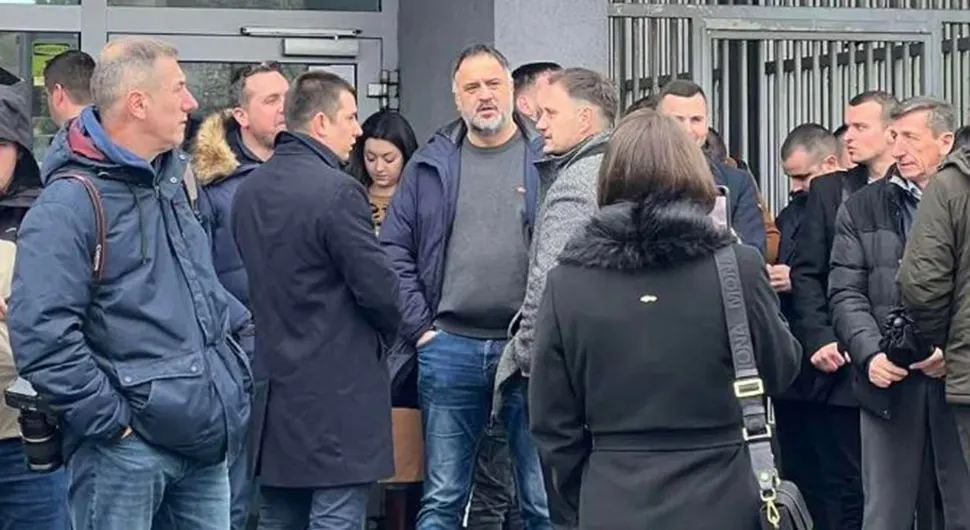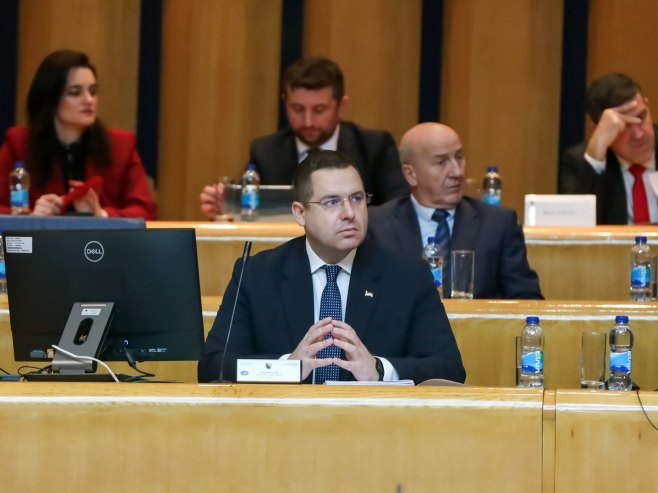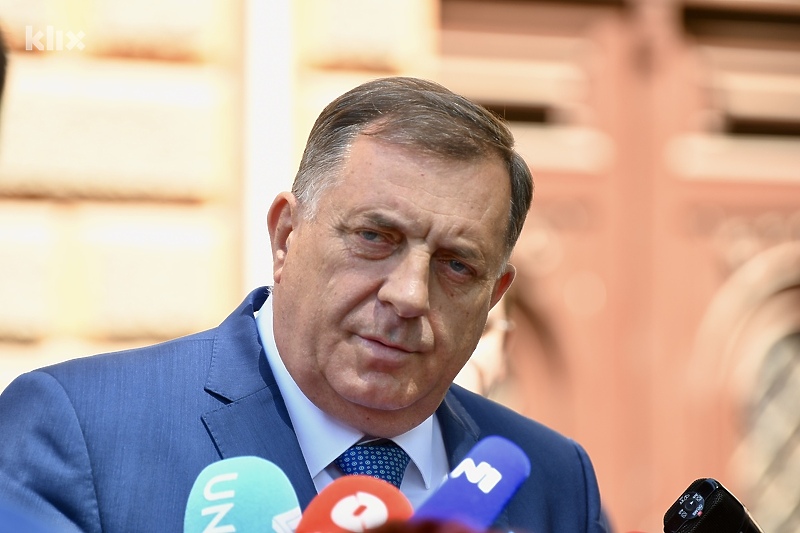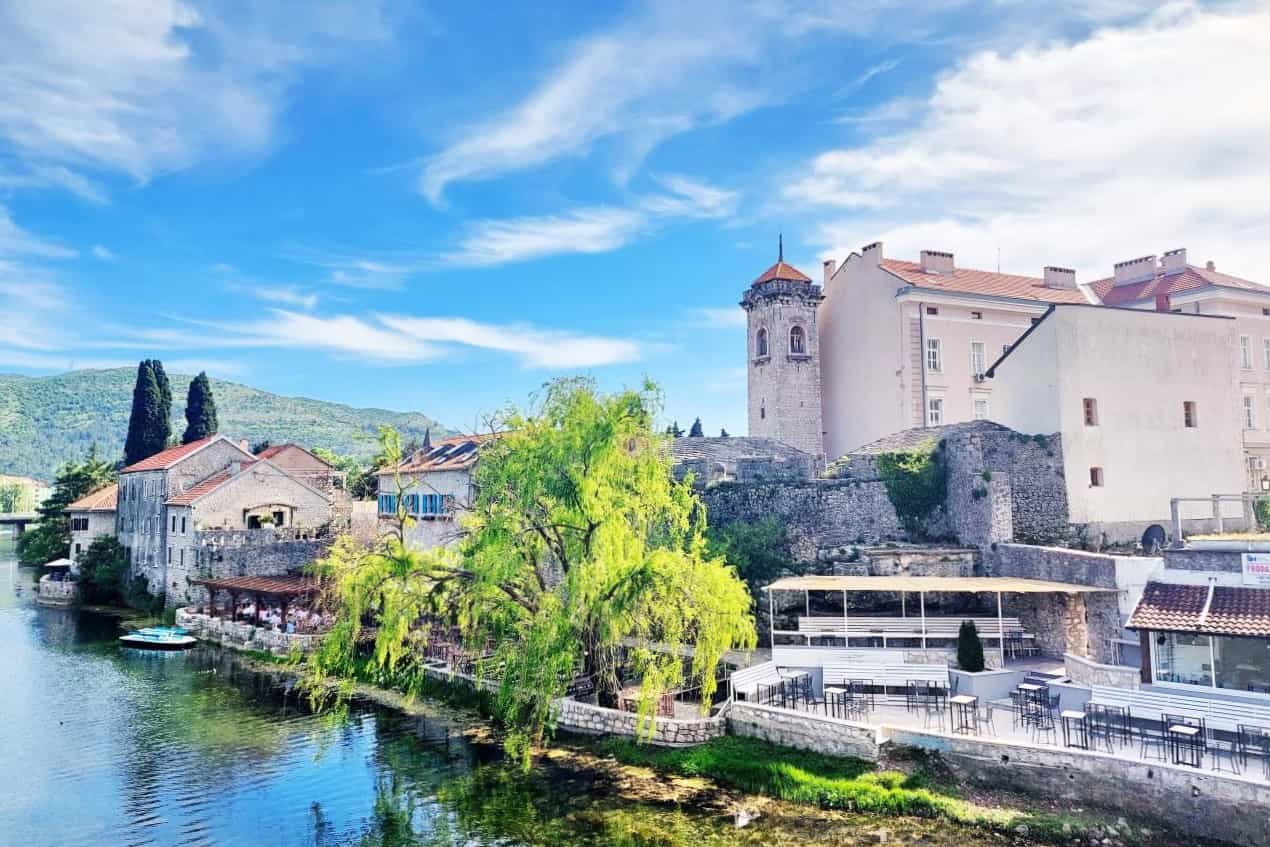At a panel discussion in Belgrade titled “The Case Against the President of Srpska as the End of Bosnia and Herzegovina,” Mlađen Cicović, Head of the Republika Srpska Representation in Serbia, declared that the proceedings against Milorad Dodik, President of Republika Srpska, are not merely legal actions against him but against Republika Srpska and its institutions, as well as the Dayton Peace Agreement.
Cicović reminded that the constitutional position of Republika Srpska aligns with that of all its authorities and levels of government, meaning those democratically elected to positions within Srpska and who operate in accordance with the Constitution, the law, and decisions of the National Assembly, the highest legislative body of Republika Srpska.
He emphasized that defending the institution of the President of Republika Srpska is tantamount to defending Srpska’s constitutional position within the Dayton framework in Bosnia and Herzegovina, and the Dayton Peace Agreement as a premier international legal document, calling for understanding, cooperation, consensus, unity, and solidarity among all Serbian political entities in Srpska.
“I believe it is clear to everyone that there would be no choice for the Serbs in Bosnia and Herzegovina if it weren’t for Republika Srpska, as we wish to preserve it. It seems crucial that we in Srpska understand that resisting pressures and legal violations against the Constitution of Bosnia and Herzegovina means preserving our Republic and its highest democratic institutions, which further means preserving the freedom of the Serbian people in Bosnia and Herzegovina,” stressed Cicović.
He pointed out that an illegitimate or rather “no one’s” representative in Bosnia and Herzegovina has introduced a new electoral law contrary to the procedure for changing the Electoral Law, and that proposing a resolution on Srebrenica to the UN General Assembly under the so-called “support of Bosnia and Herzegovina” was done without the consent of the Serbian people, contrary to the Dayton Agreement, the Constitution of Bosnia and Herzegovina, and all principles that underpin peace in Bosnia and Herzegovina.
Cicović also highlighted that the admission of the false state of Kosovo into the Council of Europe, which according to UN Security Council Resolution 1244 is part of Serbia, was illegal.
He assessed that all these actions show that the collective West has lost its way and is plunging into illegality everywhere.
Cicović believes that the West will neither easily nor soon accept legality as the foremost characteristic of any action, nor international law and the full respect of nations and states, nor will it voluntarily relinquish the use of double standards, economic enslavement, and occupations wherever it deems possible.
He added that the West is doing this in order to seek acceptance of the status quo in its final showdown with the East and all free states of the world.
“It is quite certain that the world will be put in order, and that the era of a unipolar world and colonialism is ending, and therefore it is now important that we have a strong character and remain steadfast, united, and collected in defending Republika Srpska and Serbia,” Cicović conveyed.
He stated that the National Assembly of Republika Srpska will adopt the International Commission’s report on Srebrenica tomorrow, thus sending the truth about Srebrenica to the world.
“After that, from the large rally in Banja Luka, the truth will go out that the Serbs and Republika Srpska are committed to freedom and defending their future – never at anyone’s expense,” emphasized Cicović.
The panel at the Press Center of the UNS, organized by the information-political portals “All About Srpska” and “Facts,” and the Republika Srpska Representation in Serbia, features distinguished experts, historians, and analysts from Serbia and Republika Srpska.
Participants will attempt to answer several key questions, including what the trial against Dodik and the expansion of the blacklist to include Cvijanović, Višković, and Stevandić mean, and simultaneously, what encouragement Srpska has for EU membership?
Do Dodik’s visits to Russia, Belarus, and Turkey signify a turn towards the East, which welcomes us, as opposed to the West, which does not, or just confirm neutrality?
If Srpska is blocking Bosnia and Herzegovina’s sanctions against Russia and moving closer to NATO while seeking observer status in BRICS, and the FBiH wants the opposite, isn’t this Dodik’s peaceful separation through the back door?
How long will Republika Srpska and friendly countries, or Dodik himself, have to endure legal violence against Republika Srpska and the Serb people and the farce of trials in Sarajevo produced by a German, the self-proclaimed high representative whose actions could lead to dangerous unrest and civil war in Bosnia and Herzegovina?
Why does such a protectorate challenge agreements among the three sides in Bosnia and Herzegovina without Western mediators, and why does Russia not question why it is not involved in this mediation even though it is a guarantor of Dayton and a member of the PIC?
Do Srpska and Serbia have developed joint responses to various outcomes in Ukraine, Gaza, Kosovo*, elections in the USA, and the like, including support from powerful friends?
Source: RTRS









